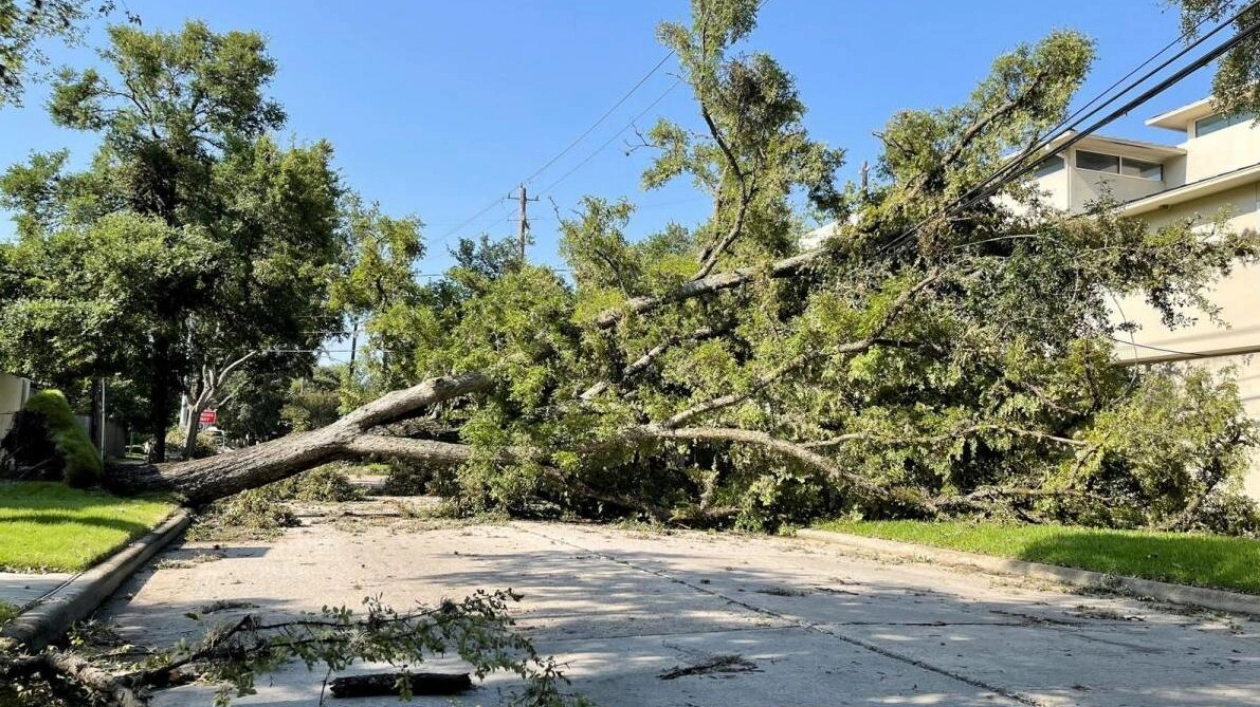Tropical storm Debby emerged on Saturday night and is projected to intensify into a hurricane before striking Florida's northern Gulf Coast on Monday, according to the National Hurricane Center. The storm evolved from a disorganized system in the Atlantic, finally moving away from Cuba's northern shore on Saturday evening, positioned about 100 miles west-southwest of Key West, Florida, as reported by forecasters.
Jamie Rhome, the deputy director of the NHC, stated, "It's increasingly evident that Debby will transform into a hurricane before it lands," urging residents to comply with evacuation directives. Moving at a pace of 14 mph (23 kph) towards the Gulf Coast, approximately 240 miles (386 km) south of Tampa, Debby's winds are anticipated to escalate from 40 mph to 70 mph or higher as it strengthens overnight. The NHC has described the situation as "life-threatening."
Debby was already causing rain squalls, 40 mph winds, and rising tides in Key West, Florida, on Saturday night. Rhome highlighted multiple hazards, including potential storm surges of up to 7 feet (2 m) in Florida's Big Bend area, where the storm is expected to make landfall southeast of the Panhandle. He noted, "That's over my head," referring to his own height of six feet. He also warned of heavy rainfall, with up to 10 inches (25 cm) expected and possibly more if the storm slows or stalls over land.
Debby is forecast to traverse Central Florida, reaching the Atlantic coast and moving towards Savannah, Georgia, and then Charleston, South Carolina. Ocean surges are predicted from Bonita Beach to Tampa Bay, potentially causing waves to travel further inland, posing risks to structures and people. Evacuation orders, both mandatory and voluntary, have been issued for parts of Pasco, Hernando, and Citrus counties in Florida's Gulf Coast.
A tropical storm warning is active for southern Florida, extending north to the Fort Myers area, which suffered significant damage from Hurricane Ian in 2022. Governor Ron DeSantis has mobilized 3,000 National Guardsmen and declared emergencies in most cities and counties in anticipation of Debby's landfall. U.S. forecasters anticipate a high number of Atlantic hurricanes in the 2024 season, with four to seven major hurricanes expected among 25 named storms, surpassing the 2005 record that included hurricanes Katrina and Rita.
Only one hurricane, Beryl, has formed this year, becoming the earliest Category 5 storm on record, which devastated the Caribbean and Mexico's Yucatan Peninsula before weakening and affecting Texas' Gulf Coast. Debby is expected to follow a similar path to the catastrophic 2022 Hurricane Ian, which resulted in at least 103 fatalities in Florida and billions in damages along the Gulf Coast.






